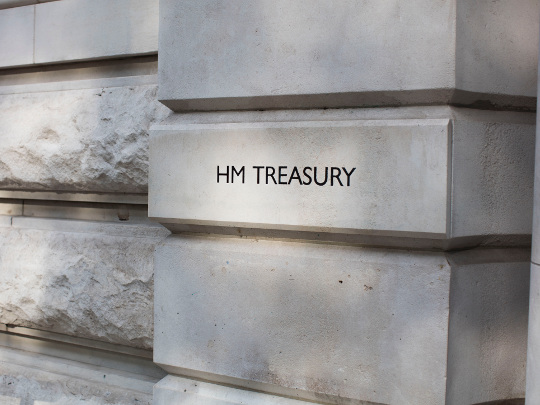Independent Commission for Aid Impact publishes review of UK's management of its aid spending target
In a new report published last week, the Independent Commission for Aid Impact (ICAI) warns that the rising proportion of UK aid allocated to domestic refugee and asylum costs delivers poor value for money and has undermined the Home Office's incentive to resolve the ongoing asylum accommodation crisis.
 Image credit: UK GovernmentThe 22-page report can be downloaded here.
Image credit: UK GovernmentThe 22-page report can be downloaded here.
The watchdog highlights that the use of official development assistance (ODA) to support refugees and asylum seekers in the UK, known as in-donor refugee costs (IDRC), rose sharply from £628 million in 2020 to a peak of £4.3 billion in 2023.
This increase, the ICAI says, was driven by a growing backlog of unresolved asylum claims, which left people eligible for support for extended periods, and by the widespread use of costly hotel accommodation. These factors contributed to the UK spending a significantly higher share of its aid budget on domestic refugee costs than other donor countries in the 33-nation Development Assistance Committee (DAC) of the Organisation for Economic Cooperation and Development (OECD).
The report notes: "While other European donors also experienced large rises in their IDRC, in 2022 the UK spent double the DAC average as a share of its aid budget on IDRC (28.9% of total UK ODA, compared to a 14.4% average for DAC donors). ICAI calculations showed that, in 2023, the UK's reported IDRC per asylum seeker was triple that of other European donors (France, Germany and Sweden), due mainly to the high cost of hotel accommodation."
Under international rules, the first-year costs of supporting refugees and asylum seekers within donor countries can count as ODA. However, the ICAI noted that these funds, while recognised as humanitarian assistance, are less efficient and less equitable than support provided in countries of origin or neighbouring countries. Despite rising costs, the UK has so far resisted adopting a cap on the proportion of its aid budget spent on IDRC, unlike countries such as Sweden and the Netherlands.
According to the ICAI, the rapid growth of IDRC has not supported the UK's stated international development priorities, and has been characterised by weak value-for-money controls within the Home Office, which manages the bulk of IDRC spending. The watchdog said that the department's "unlimited access" to the aid budget may have reduced its incentive to find long-term, sustainable solutions to the asylum accommodation crisis.
In its conclusion, the report explains: "ICAI has concluded that the rapid growth of IDRC from 2021 onwards represents poor use of UK ODA. UK spending on IDRC did not contribute to any of the strategic priorities set out in the May 2022 International Development Strategy. ICAI found that the increase was primarily caused by the growing backlog of unprocessed asylum claims (which resulted in people being eligible for ODA-funded support for longer periods) and the consequent accommodation crisis, leading to the use of expensive hotel accommodation. As noted above, this led to the UK spending twice as much on IDRC (as a share of total ODA) and three times as much per refugee and asylum seeker compared to other donor countries. ICAI found that Home Office controls over the value for money of IDRC were inadequate, and that unlimited access to the ODA budget weakened its incentives to pursue long-term solutions to the accommodation crisis. While IDRC is recognised internationally as a form of humanitarian assistance, ICAI noted that it is both less efficient and less equitable than supporting refugees and displaced people in their own regions. The current government has pledged to bring down IDRC in the coming years. However, it has not to date revisited the previous government's rejection of ICAI recommendations to cap the proportion of the aid budget spent on IDRC and adopt a more conservative methodology for reporting IDRC."
In addition, the report highlights how the extended period of uncertainty in the UK aid budget from 2020 onwards has also left the Foreign, Commonwealth & Development Office (FCDO) operating for long periods without predictable aid budgets.
With the UK's aid budget set to fall by 2027–28 to its lowest share of gross national income (GNI) since 1999, the ICAI warns that up to 20% could still be spent on supporting refugees and asylum seekers in the UK, leaving as little as 0.24% of the GNI available for overseas aid.
Harold Freeman, ICAI Commissioner, commented: "The UK's development programme is at a turning point, with budget reductions coming against a backdrop of increasing global conflicts, climate threats and rising humanitarian needs. At the same time, UK asylum costs are likely to continue to absorb a significant proportion of our aid funding. The government has already taken steps to address some of the flaws in the system for managing aid identified by past ICAI work. But further changes will likely be needed to maximise the impact and value for money of the remaining development budget."
A further comprehensive review of how the UK has managed its ODA spending will be published by the ICAI next year.